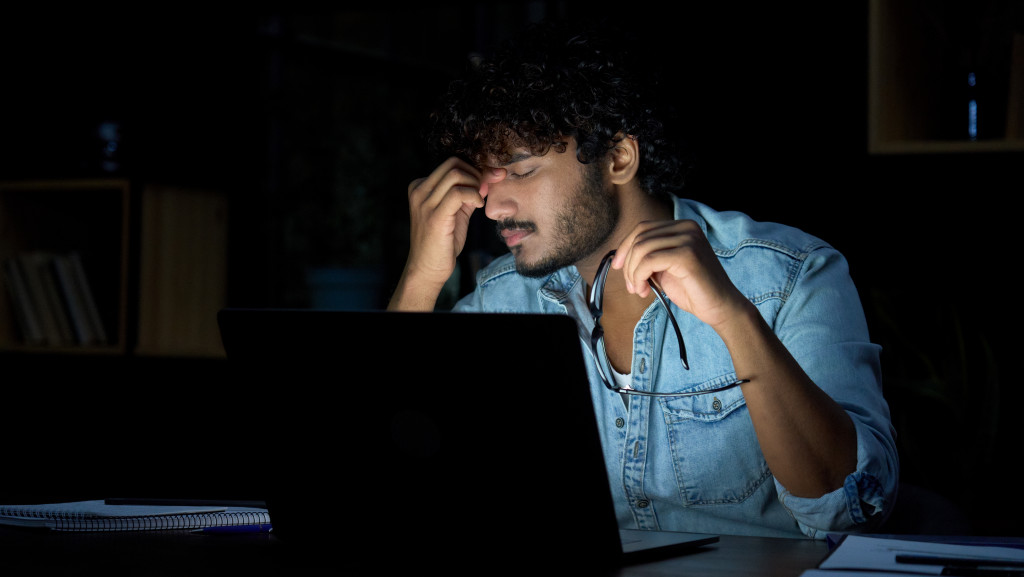Anxiety disorders are the most common mental illness in the United States, affecting 40 million adults in the United States age 18 and older, or 18.1% of the population. Anxiety disorders are highly treatable, yet only 36.9% of those suffering from an anxiety disorder receive treatment.
Anxiety disorders can be very debilitating, making it challenging to lead an everyday life. People with anxiety disorders often have difficulty functioning at work or school, maintaining relationships, and participating in social activities. They may also have trouble sleeping or eating and constantly feel anxious or worried.
Some people with anxiety disorders experience only a few symptoms, while others may experience many symptoms. The type and severity of symptoms vary from person to person. Some common symptoms of anxiety disorders include:
- Racing heart
- Difficulty breathing
- Feeling overwhelmed
- Nausea
- Dizziness
- Shaking
Unfortunately, it can be challenging to battle anxiety day in and day out, making it necessary to create a routine to make winning against it efficient. Here are a few tips to help you.
Support Group
Anxiety disorders can make people feel isolated and alone, making it challenging to participate in social activities or maintain relationships. It is important to keep loved ones close when battling anxiety, as they can provide support and understanding. Loved ones can also help keep distractions at bay, which can be helpful when coping.
Fortunately, most people have their family members or romantic partners together to provide support during tough times. However, not everyone has this type of support. If you do not have loved ones to rely on, consider joining an anxiety disorder support group.
Support groups provide people with anxiety disorders a safe place to share their experiences and feelings with others who understand what they are going through. These groups can also offer advice on how to cope with anxiety and provide emotional support.
Cognitive Behavioral Therapy
Cognitive behavioral therapy (CBT) is a type of psychotherapy that helps people change negative thinking and behavior patterns. CBT is an effective treatment for anxiety disorders.
During CBT, patients work with a therapist to identify and change negative thinking patterns and behaviors contributing to anxiety. Patients also learn how to manage stress and cope with anxiety-provoking situations.
Exercise
Exercise has many benefits, both physically and mentally. Physically, exercise can help reduce stress, improve sleep, and increase energy levels. Mentally, exercise can help improve mood, reduce anxiety, and increase self-esteem.
For people with anxiety disorders, exercise can be a powerful tool for managing symptoms. Exercise releases endorphins, which have mood-boosting effects. It also helps to reduce stress hormones, such as cortisol.
In addition, exercise can help to distract from anxious thoughts and provide a sense of accomplishment. It can also help to increase social interaction and reduce isolation.
When starting an exercise routine, it is essential to start slow and gradually increase the intensity of your workouts. It is also necessary to find an activity you enjoy. Some people find group exercise classes helpful, providing built-in motivation and support.
Support Animal

Sometimes, all people need is a little love and affection. For some people with anxiety disorders, a support animal can provide the love and companionship they need to cope with their symptoms.
Support animals are usually dogs but can also be cats, rabbits, or other animals. These animals are specially trained to provide emotional support and comfort to their owners. They are not service animals, such as guide dogs, and are not allowed in public places where pets are not allowed.
However, support animals can provide invaluable assistance to people with anxiety disorders. They can help reduce anxiety symptoms and provide companionship and unconditional love. Those benefits can be attractive enough to make you want to get a dog, but they will not start that way. Animals need domestic training because they are rowdy. Enroll your pup in a board and train program to have a better-behaved dog. Those boot camps can last for two to six weeks.
Medication
Medication may be necessary for some people with anxiety disorders to manage symptoms. Several drugs are used to treat anxiety, including antidepressants, anti-anxiety medications, and beta-blockers.
Antidepressants are the most commonly prescribed type of medication for anxiety disorders. These medications can help to improve mood and reduce anxiety symptoms. Popular antidepressants to treat anxiety include selective serotonin reuptake inhibitors (SSRIs) and tricyclic antidepressants (TCAs).
Anti-anxiety medications are also commonly prescribed for anxiety disorders. These medications can help to reduce anxiety and improve sleep. Popular anti-anxiety drugs include benzodiazepines and buspirone.
Beta-blockers are a type of medication typically used to treat high blood pressure. However, they can also help treat performance anxiety. Beta-blockers work by blocking the effects of adrenaline, which can help to reduce anxiety symptoms.
Medication is not a cure for anxiety disorders but can be a valuable tool for managing symptoms. Working with a doctor to find the proper medication and dose is essential. Medication can cause side effects, so monitoring and reporting any problems to a doctor is necessary.
Final Thoughts
Anxiety disorders are severe mental health conditions that can cause significant problems in daily life. However, there are many treatments available that can help to reduce symptoms and improve quality of life.
Talk to your doctor about treatment options if you are struggling with anxiety. They can help you find the best way to manage your symptoms and live a healthy, happy life.
